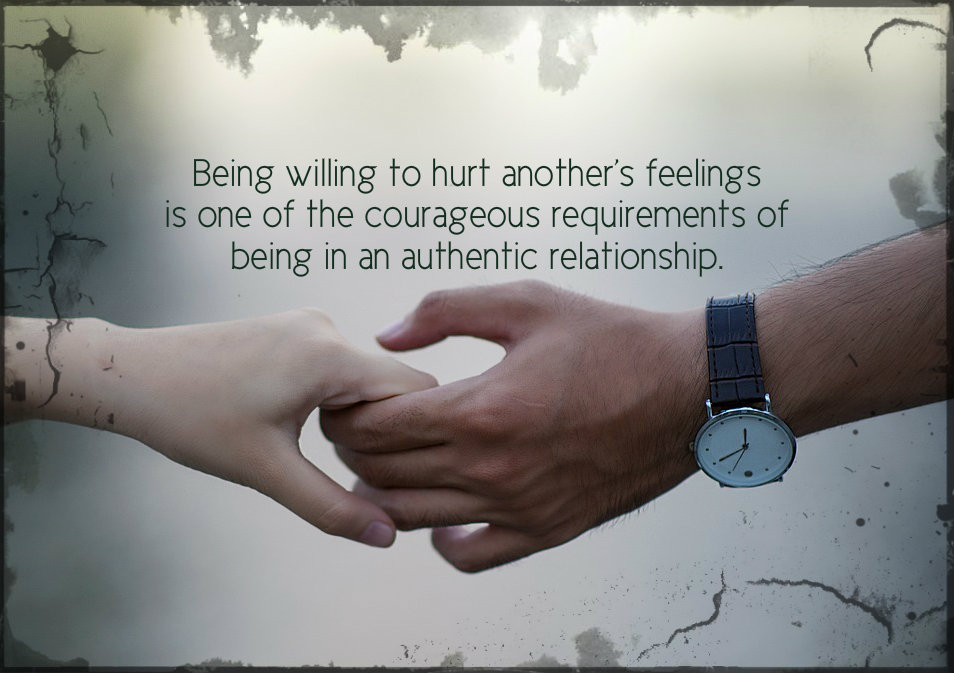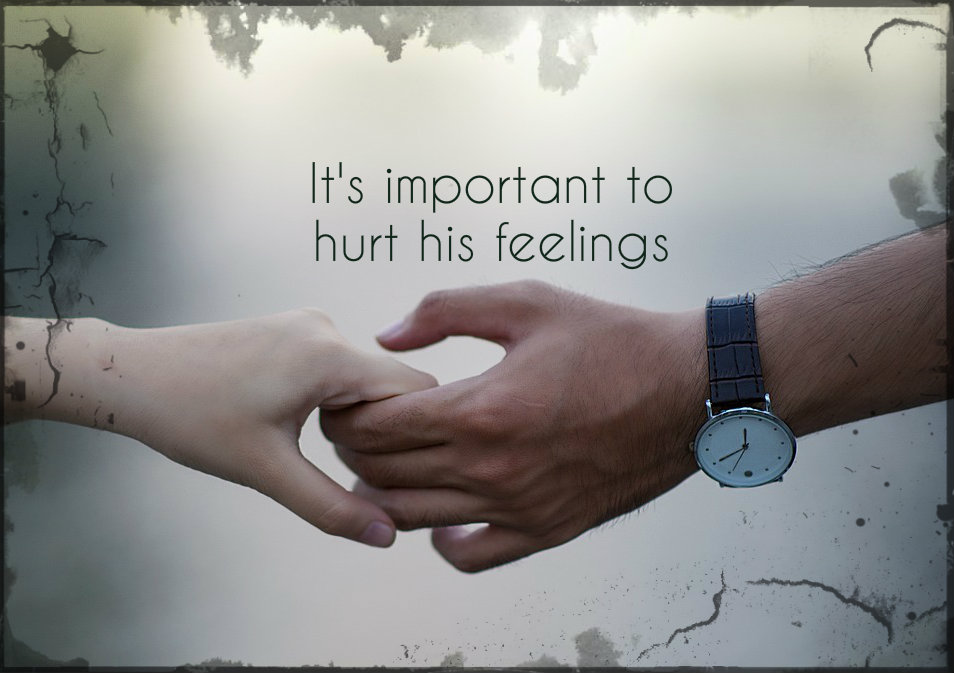Hers too, for that matter.
Husband is good for me. He is so good at marriage.
Husband teaches me so much about what it feels like to be in a good relationship, it sometimes takes my breath away.
One of the things Husband does is invite me to tell him when, from my perspective, something isn’t working. Even if it will be hard for him to hear.
That doesn’t sit easily with me. I don’t like the thought of saying something to him that will be hurtful or be uncomfortable for him.
So, although it often feels like I’m opening Pandora’s box, and I don’t know how it will go, I let him know when I’m not feeling right about something he is doing, because that’s what he asks.
We were having a conversation the other day about some plans we were making, and he said, “You’re quiet…what are you thinking?”
My immediate response? “Nothing.”
Which wasn’t true, but it was my first impulse. A lot of us say, “Nothing” as a stock answer. It’s easier than, “Well, the something I want to say is a something you’re not gonna like”.
Maybe you do that too?
But then I remember…that’s not how Husband and I roll. That’s not what he asks for me.
So I take a deep breath, and wade into saying something that is honest, but not easy.
It isn’t easy because: I knew it is likely gonna hurt his feelings.
I jump into the deep end. I let him know how this conversation felt like past patterns said it wouldn’t go well, so I fell silent. I let him know of a pattern that felt familiar and unsuccessful. I’ll spare you the details, but I basically accused Husband of a negative behaviour.
His answer blew me out of the water. After a moment of silence, he said: “Thank you for telling me. I’m really glad you said something.”
That’s how he started: “Thank you”.
Gratitude.
It’s not the first time, in fact, it’s his usual response when I say something that might feel hurtful to him.
Crazy wonderful!
It speaks to Husband’s character that he is first grateful to me when I dare tell him something hard. It also makes it easier for me to talk to him the next time.
I could feel how it was a decision for him to say thank you…I’m not sure it is the instinct of most of us to invite criticism, and then be grateful for it.
It wasn’t easy for him to hear, but it was helpful in moving our conversation forward. Because what followed was really powerful. It impacted the way we talk about planning, not just in this conversation, but all future conversations. A way for us to work together better.
He then acknowledged my hesitation and fears…Husband owned who he is, and he owned what he has done in the past. He heard my perspective, and only then, gave me his. His perspective was important…and he gracious response gave me the grace to hear it.
We had a great conversation about how we plan, and how we can better plan so that it works for both of us.
I think we’re a stronger couple for it.
Husband also knows I’m human. I have tender spots that don’t always make sense…and so sometimes I get hurt when others wouldn’t. I have quirks and preferences that are unique to me—and he doesn’t know about those unless I tell him. He gets that.
Husband invites me to be me, and that means he invites me to let him know when something he does is uncomfortable for me.
I think that’s pretty incredible—he has shaped our conversation so that my “complaints” about what he does are obstacles we have to figure out together, rather than something he becomes defensive about.
My initial silence was my default response—so many of us have been trained:
“If you can’t say something nice, don’t say anything at all.”
And so when something isn’t working, no one knows. No one can do anything about it.
Nothing happens.
And whatever isn’t working well between the two in the relationship stays not working.
It’s probably strange to hear a therapist tell you that it is important to hurt another person’s feelings.
It’s strange for me to write it.
To be frank, one of the reasons that us therapists have as many clients as we do is that in the effort to avoid hurting another person’s feelings, many important conversations never happen.
When important conversations remain unspoken, when the content of those conversations is never uttered or processed. And, well, something that isn’t working stays not working.
This idea is so pervasive in our practice…that I actually wrote a book that has this as an important concept with in the book. Are you liking this chapter? Wanna share it with a friend? Buy the book!
…If it just stayed not working, that would be problem enough.
But actually, that unspoken conversation is like a snowball at the top of a hill. The longer that conversation remains unspoken, the more the unspoken conversation affects the relationship. The effects of years of pain around the way:
- money is spent,
- sex happens (or doesn’t happen) or
- things get done (or don’t get done) around the house builds and builds.
The problem gains in size and speed when it isn’t processed and worked through. The weight of the work not done snowballs.
Over the course of a coupla decades…well, “avoiding the conversation so you don’t hurt his/her feelings” can destroy the relationship.


Hal Anderson and I spoke about this upside down way of thinking: hurting another’s feelings as part of relationship enrichment:
I think it can be really helpful for a person’s feelings to be hurt. Emotions are information for us—our feelings help us learn important things at a deep level. Hurt feelings don’t kill people. (Even though we sometimes act like they do). When people are hurting, it gives them something to be curious about, something they can work with to move forward in ways that make them better, strong, more compassionate people.
Hurt feelings are a normal response by a normal person to what is happening in the world.
Those hurt feelings are great motivation to change future behaviour in ways that enhance the relationship, and make the world a better place.
So…Husband and I have a commitment to each other: to raise something that doesn’t feel right as soon as possible.
We decided early on that we didn’t want the other one saving us from a hard, hurtful conversation if it could mean that the unspoken conversation might create relationship rot.
We are committed to having conversations that might hurt the other person’s feelings…because to not have those conversations is to hurt both of us much more in the big picture.
To be clear, we don’t have the conversations in order to hurt the other other’s feelings. That’s not the intention, just a by-product that we are willing to accept.
We work to find ways to reduce/minimize or even eliminate the pain by how we craft the conversation.
A few of our strategies to reduce the pain of the other, or be compassionate towards it when it happens:
- We allow ourselves to feel the discomfort and work through it. Sometimes, Husband will tell me that he has thought about how to word a conversation for several days before he raises the issue. I’m glad, even if it takes him time, that he finds a way eventually.
- We work to approach it as a team. If I’m driving him nuts, he knows that this is something we have to figure out together. He trusts that I don’t get up in the morning with the intent to make his life miserable. None of us do…but sometimes, when there is a problem, we talk to the other as if the other person is out to get us.
- We stay civil. Kind and gentle. The style with which you bring something up speaks to your spirit. People respond to the spirit of the conversation more than the words. Husband is never nasty. I can hear his complaint about how I did something so much easier when he has a soft start up to the conversation.
- The conversation is just that—a conversation. When one of us raises a concern, we find out where the other person was coming from. Often that allows for both of us to hear where the other person was coming from…why it made sense at some level for things to happen the way they did. Learning new things about each other and ourselves is an important part of the process to get to a richer new place in our relationship.
- We remind ourselves, sometimes in the middle of a conversation, that talking about this stuff is hard. We also remind ourselves that not talking about this stuff, is ultimately, harder.
- These conversations happen only occasionally. In between these conversations there is lots of laughter, fun times, affirmations of love and appreciation. We remind each other that we see each other as a fabulous partner that we deliberatey chose. Our relationship is built to handle hard conversations that might be hurtful.
Husband and I do not have a perfect relationship.
Far from it. The above list is something we work towards…and fail at. And when we do, one of us can get hurt–and then we work to resolve it–using the list as outlined above. Rinse and repeat.
We’re human, just like anybody else. But one of the strengths of our relationship is the ability that we have given each other to bring up when something isn’t working.
We are playing the long game which means working out the wrinkles as they arise so that they don’t hijack the relationship in the future.

Husband says something to me occasionally that is really helpful to hear:
I’m glad you’re not perfect. Because I’m not perfect. And if you were perfect, you wouldn’t have married me.
When he says that, it helps me to not feel as wounded when he brings something up. He doesn’t expect, or even want me to not make mistakes. It makes it so much easier for me to say, “Thank you for telling me that” when he raises an issue with something I’ve done.
I love that he deliberately creates room for me to make mistakes, mess up, apologize and move on.
Have I mentioned that he’s good for me? 😉
Can you invite your spouse to a conversation where you might leave wounded? Would you give your partner the gift of being able to hold your own pain at something that might be said if it would be good for the relationship in the long run?







Write a Comment